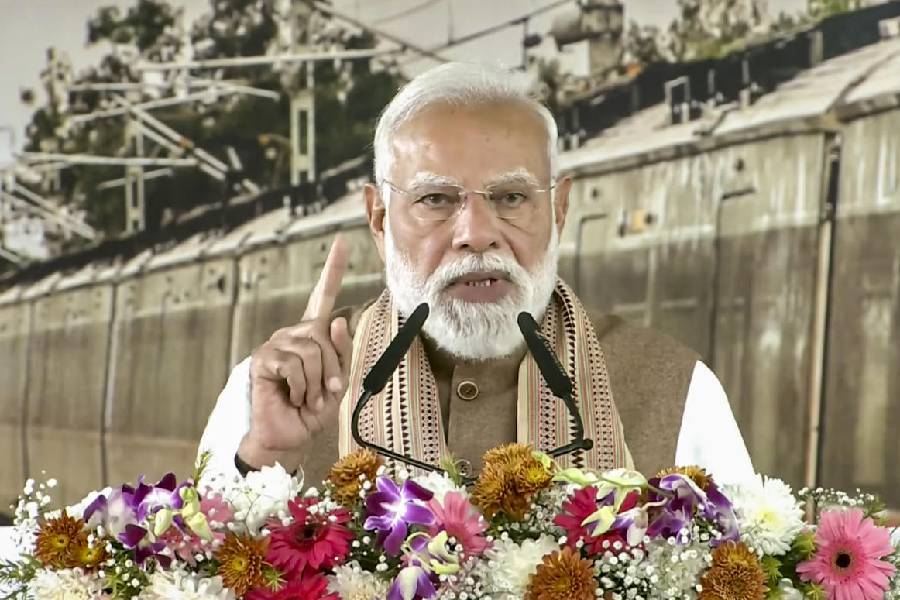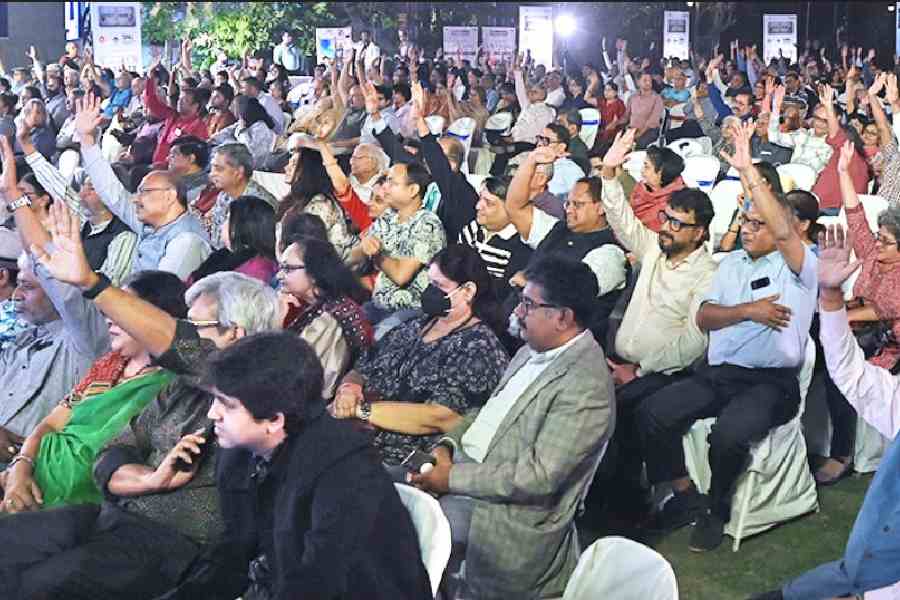 |
Bhubaneswar, Aug. 18: Childhood sweethearts Meera, 23, and Rohan, 27, (names changed) tied the knot last year in May, and everybody had then said it was a match made in heaven. But, it was not long before the sociable young girl started feeling “trapped” in the marriage.
Rohan’s possessiveness, which she once used to find “sweet”, began to stifle her. Her “darling” hubby was domineering and overprotective, a control freak, to be precise. He would not let her step out of home or talk to neighbours alone. After just five months of married life, none of it blissful, a disillusioned Meera ran away from the man she wished she had never fallen in love with.
Three months later, they were facing each other in the family court here with Meera pleading for a divorce on grounds of incompatibility.
With Bhubaneswar’s leap into a cosmopolitan culture, relationships are taking a knock and marriages are breaking at a faster rate. This is evident from the number of cases of marital disputes being lodged with the family court on the Bhubaneswar court premises.
Records with the Bhubaneswar court suggest an upward trend of marital discord in the capital. A total of 217 cases were registered in 2008. The number rose to 239 the following year and more than doubled the next with 540 disputes. It shot up alarmingly after the family court was set up in December 2010, with the number of divorce cases totalling 924. And this year seems to be heading for a new record with a number of cases having crossed the 500-mark by July end.
A practising divorce lawyer in Bhubaneswar court, Anil Satpathy, said that every month, more than 100 cases were being registered. “Most cases are maintenance related and divorce by mutual consent. Bhubaneswar probably tops the list of mutual divorce cases in the state,” he said.
In the total registered divorce cases, nearly 90 per cent couples were seen to have had a love marriage. And in most cases, the divorce plea was mutual wherein the couples, both working, were far from willing to adjust and compromise.
Advocate Ashok Badapanda said that in case of arranged marriages, excessive interference or torture by in-laws caused separation. “In an arranged marriage, the wife is usually under a lot of pressure as she has to cope with a new environment and more often than not, ends up making sacrifices. But, when torture at the hands of in-laws gets unbearable, the wife’s parents intervene and divorce takes place,” said Badapanda.
Cases based on infidelity, though, were few. In June, a Bhubaneswar-based software professional got separated from his teacher wife after 18 months of marriage because he was in love with another girl. “I got married because of family pressure. But, when she found out about my girlfriend, our quarrels grew by the day and we decided to separate. I will marry my girlfriend shortly,” he said.
Further, lack of sexual gratification has not, so far, featured as grounds for divorce. Satpathy, however, remembers an instance in which a woman had filed for legal separation alleging that her partner was impotent.
“If the woman is aggressive, she opts for divorce. Else, she sacrifices her happiness for her husband’s,” he said, adding that he had dealt with two such cases in his two-decade long career.
The lawyers said if the couple belonged to the higher income group, they usually agreed to end the marriage by mutual consent, but in case of lower class or middle class families, divorces took a longer time to materialise as both parties fought for alimony. These cases, mostly in arranged marriages, sometimes lingered on for several years.
Sources said that at present, nearly 5,000 cases of marital disputes were pending with the family court, 75 per cent of which were under civil procedure dealing with maintenance, mostly claimed by female partners by spouses and their parents under Section 125 of the code of Criminal Procedures, 1973. Some others pertained to restitution of conjugal rights.
Lawyers said higher educational qualification or higher salary of the wife also led to divorce.
“A couple, whose marriage was arranged by their professor fathers, hit rock bottom because the boy felt insecure that his wife was more academically qualified. He would lash out at her verbally and torture her. Though they both agreed to get separated, the wife claimed compensation of Rs 5 lakh and the boy’s family refused to give them anything. The case is still on,” said a lawyer.
The woman in question here said the abuse stemmed from her husband’s mental illness. “The torture began barely within a year of our marriage. So, I filed for a divorce. I haven’t thought about a second marriage yet. My husband’s elder brother and his wife in the US recently got divorced as she was also being tortured,” said the professor’s daughter.
Legal practitioners said growing economic independence among women led to clash of ego with their partners, ultimately resulting in divorce. “Fast changing lifestyle and financial independence of both husband and wife are major reasons for divorce,” said advocate Subhranshu Dash.
Sociologist Navneeta Rath said growing independence of women, who were educated, and ego clashes led to poor adjustment between couples, leading to divorce. “The decline of the joint family system, which was a cementing factor earlier, is another reason. Women no longer tolerate any sort of assault. Nor do they consider divorce taboo these days,” said Rath.
Speaking about the divorce norms, the advocates said if a couple’s marriage had been registered under the Special Marriage Act, they would have to file for divorce after a one-year desertion period. However, on certain grounds such as infectious disease and danger to a partner’s life because of persistent torture and so on, a case could be filed earlier.
If the marriage has been registered under the Hindu Marriage Act, 1955, the desertion period is two years.
In the past, cases related to the Hindu Marriage Act were filed with civil judge senior division while district judge used to deal with disputes related to the Special Marriage Act. At present, the family court deals with all cases of marital discord.
The family court gives ample scope to couples to settle the matter after conducting reconciliation sessions under the guidance of counsellors. Marital discord between a Ranji cricketer and his estranged wife was ameliorated following such sessions. But, the counselling failed in case of an Odia actor and a model, who claimed that the former had ditched her after cohabiting for two years.










